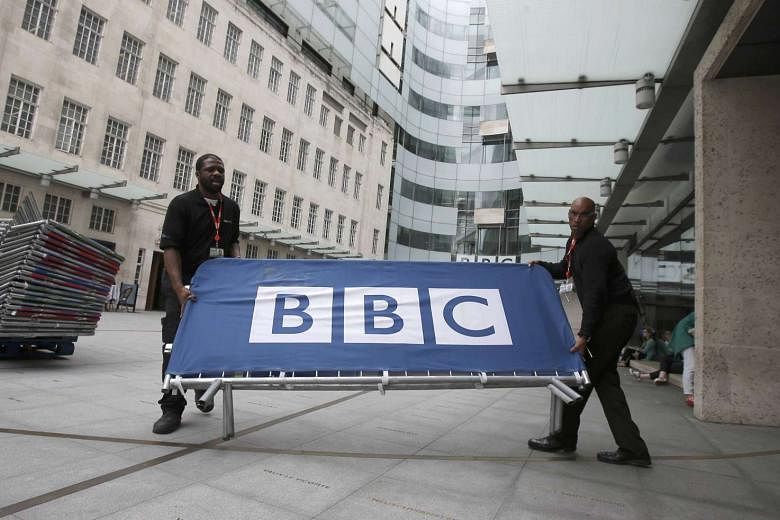LONDON (AFP) - The government on Thursday (May 12) proposed major changes to how the BBC is run to keep it "at the very heart of British life", watering down more radical plans that had raised fears for the broadcaster's future.
Unveiling the proposals in Parliament, media secretary John Whittingdale said the public broadcaster should not simply compete for ratings with its domestic commercial rivals. And in its international services, it should reflect Britain, its culture and values to the world through accurate, impartial and fair news coverage.
"The BBC is and must always remain at the very heart of British life. We want the BBC to thrive, to make fantastic programmes for audiences and to act as an engine for growth and creativity," said Mr Whittingdale. "Our reforms give the BBC much greater independence from government in editorial matters, in its governance, in setting budgets and through a longer charter period.
"These reforms will assist the BBC to fulfil its own stated desire to become more distinctive."
Under the plans, the British Broadcasting Corporation will be regulated by an external organisation, the independent media watchdog Ofcom, for the first time in its 90-year history.
It would also have a new board to run day-to-day matters, although the BBC would name at least half the 14 members and the government no more than six.
The BBC would also have to disclose the salaries of employees that exceed director-general Tony Hall's pay of £450,000 a year.
The BBC would have a new mission statement: "To act in the public interest, serving all audiences with impartial, high-quality, and distinctive media content and services that inform, educate and entertain."
The plans will be debated by MPs later this year before an 11-year renewal of the corporation's governing charter is agreed.
Celebrities including James Bond star Daniel Craig and Harry Potter author J.K. Rowling have warned against cuts at the broadcaster - nicknamed "Auntie" due to its once-ubiquitous presence and cosy image in British homes.
The BBC is funded through an annual licence fee of £145.50 that all British households have to pay to watch live television.
This raises more than £3.7 billion per year.
The licence fee would be allowed to rise in line with inflation.
Growing numbers of domestic viewers catch up on BBC programmes online rather than watch live, and they too would require a TV licence under the new plans.
Responding to the proposals, Hall said they were a mandate for a "strong, creative BBC" that would be "good... for Britain".
The director-general said they endorse the "scale and scope" of what the BBC currently does.
Relations between the BBC and Prime Minister David Cameron's governing centre-right Conservative Party have long been tense, with some MPs accusing the broadcaster of institutional left-wing bias, which it denies.
Ms Maria Eagle, media spokesman for the main opposition Labour Party, accused Mr Whittingdale of "ideologically-driven meddling".
His proposals were "totally out of step with the licence fee payers who value and support the BBC", she said.

